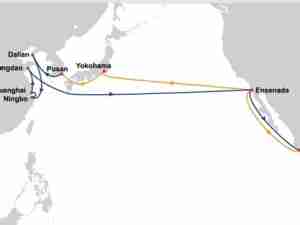By Peter A. Buxbaum, AJOT
Gaps in security at Caribbean Basin ports are significant enough to raise concerns that those areas could be used to launch a terrorist attack against the United States. Such was the tone of a recently released report from the Government Accountability Office, an investigative arm of the US Congress.
The GAO report also concluded that substantial progress had been made toward securing Caribbean ports. But it also noted significant gaps in security that could represent a threat because of its proximity to, and because of the high volume of trade the region enjoys with, the US.
The report observed that the individuals charged with involvement in the recent JFK International Airport terrorist plot were from Trinidad and Guyana and the radical Islamic group Jamaat al Muslimeen has been active in Trinidad. The Caribbean Basin region remains a major center for drug trafficking, money laundering, and a potential staging area for terrorist operations, according to the report.
Caribbean port officials took exception to the suggestion that the region's ports were lagging in implementing security measures, noting that the developing countries in the region had made substantial security investments. They added, however, that they lacked required additional funding to implement additional security, suggesting that countries from the developed world, such as the US, as well as the shipping lines using the Caribbean ports, shell out for them.
The GAO noted that in the absence of full security implementations, US agencies such as the Coast Guard must take measures, such as more frequent boarding of ships originating from less-secure ports. This action, in turn, places additional economic burdens on shippers, carriers, and international trade as a whole.
Caribbean ports include a variety of facilities such as cargo terminals, cruise ship terminals, and facilities that handle petroleum products and liquefied natural gas, according to the GAO report. 'Given the volume and value of this maritime trade, the facilities and infrastructure of the maritime transportation system may be attractive targets for a terrorist attack,' it concluded.
Most of the Caribbean countries were found to have substantially implemented the International Ship and Port Facility Security (ISPS) Code. But the Coast Guard, in the course of port inspections, found that the level of implementation of the ISPS Code in the Caribbean Basin varies widely among countries. Without identifying specific countries and port facilities, the GAO reported, 'One country within the region has not substantially implemented the ISPS Code, while another country has exceeded it in some respects.' However, according to a Coast Guard official cited in the report, the region as a whole is further along than sub-Saharan Africa in implementing the ISPS Code, but not as advanced in its implementation as most European countries.
GAO visits to facilities in five countries showed consistent implementation of security measures such as perimeter fencing and access controls, monitoring by closed circuit television, radios and cell phones for security personnel, and land and waterside patrols. But the survey also found some specific problems at some facilities with regard to access controls, security plan exercises, and the maintenance of security and training records.
The Coast Guard also found that several facilities needed to make improvements, according to the GAO report. One facility in the Caribbean Basin has been designated as, 'not maintaining effective antiterrorism measures.'
In addition to the problems identified by the GAO in security measures and procedures, the report also identified a number of other security concerns that relate to the Caribbean Basin as a whole. Among these concerns are the level of corruption in some Caribbean nations; organized gang activity in or near port facilities; the use by smugglers of Caribbean ports countries for drug t






